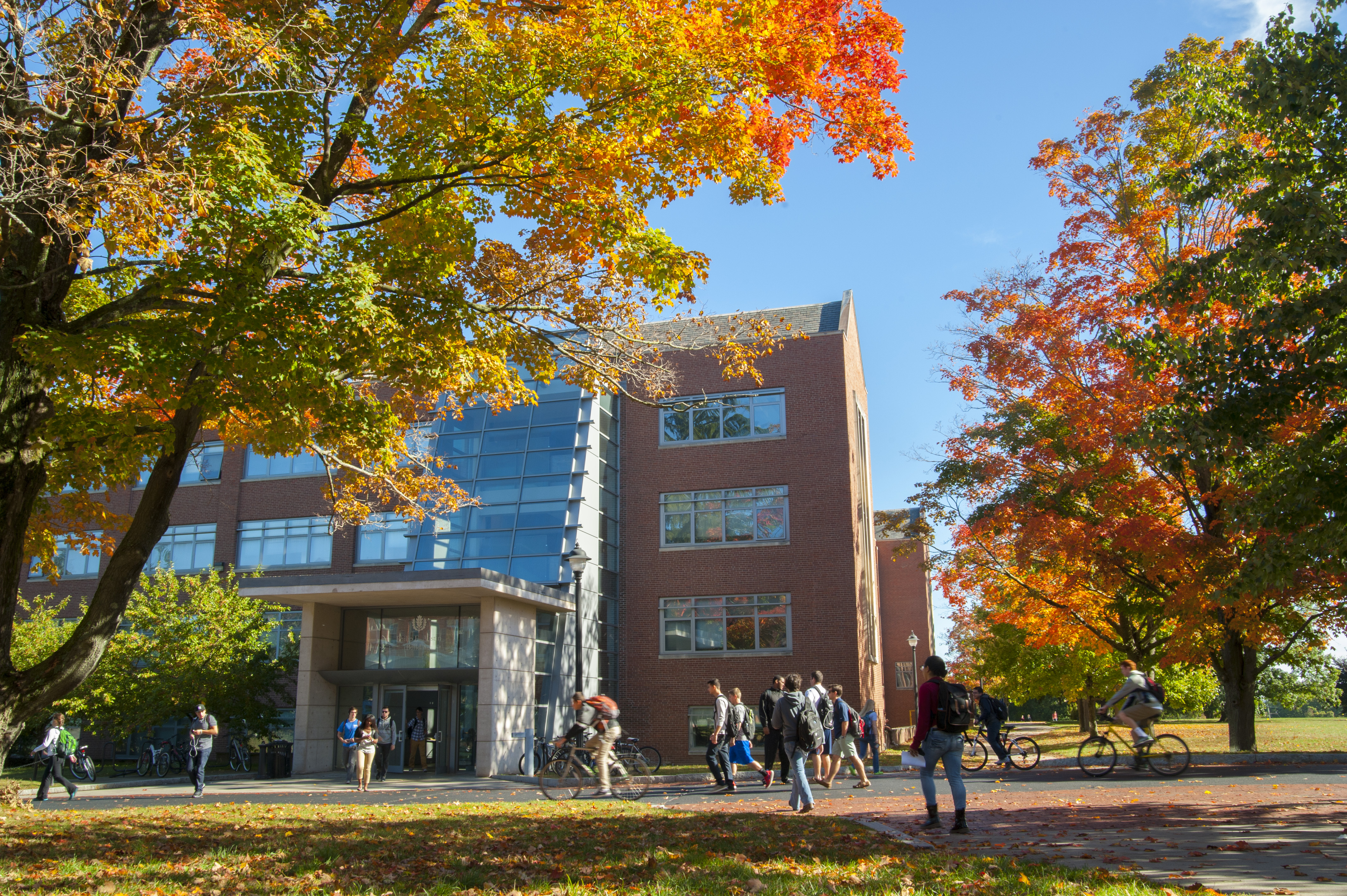Five UConn faculty in the College of Liberal Arts and Sciences have been awarded Fulbright U.S. Scholar awards to teach and conduct research abroad in the 2020-21 academic year. Earlier this year, UConn was named as a top producer of Fulbright Scholars, with six faculty Scholars for the 2019-20 academic year.
In the coming year, Amanda Denes, associate professor of communication; Anne Oeldorf-Hirsch, assistant professor of communication; Marie Shanahan, associate professor of journalism; Damir Dzhafarov, associate professor of mathematics; and Michael Lynes, department head and professor of molecular and cell biology, will embark on research at universities in Australia, Germany, the Philippines, the Czech Republic, and Norway, respectively.
The award recognizes scholars, professionals, artists and others who demonstrate high achievement and potential, and who represent the diversity of their respective societies.
The Fulbright U.S. Scholar Program offers approximately 470 teaching, research, or combination awards in over 125 countries.
Next spring, Denes will be hosted by the Translational Health Research Institute at Western Sydney University, where she will conduct her research project, “Exploring the role of communication in promoting well-being for individuals with cancer and their partners.”
At UConn, Denes is also an affiliate of the Institute for Collaboration on Health, Intervention, and Policy (InCHIP). Her research explores interpersonal communication with an interest in how communication processes affect people’s physiological, psychological, and relational health.
Oeldorf-Hirsch, an affiliate of UConn’s InCHIP and the Connecticut Institute for Brain and Cognitive Science, also conducts research in the Department of Communication’s Human-Computer Lab. She explores information-sharing as a method of communication on social media.
The Fulbright award will enable Oeldorf-Hirsch to visit the Universität Duisburg-Essen in fall 2020 as a visiting researcher in their Digital Citizenship in Network Technologies (DICINT) lab.
“Our research will focus on the cultural impacts (e.g., privacy expectations, social media norms) between the U.S. and Germany on social media literacy, and the role of that in how much social media affects our well-being,” she said.
Her work with German Neubaum, Ph.D., Head of the Junior Research Group at DICINT, will contribute to three gaps in the current understanding of social media use and effects: it considers the crucial role of culture; it expands upon current examinations of digital literacy; and it focuses on diverse types of social media use.
Shanahan, whose research and teaching focuses on the intersection of journalism and digital communications technology, will spend four months working with faculty and students at Leyte Normal University in the Philippines to determine how news organizations are combating – or contributing to – the online spread of inaccurate or deliberately deceptive information under the guise of news.
A journalist for 17 years before joining the UConn faculty, Shanahan’s research will focus on the Philippines because the nation is among the most deeply influenced by social media – of roughly 76 million Internet users there, 99 percent use some form of social media.
Dzhafarov is associate director of the UConn Logic Group. His research lies in mathematical logic, at the intersection of mathematics and computer science.
His Fulbright will enable him to spend Fall 2020 at Charles University in Prague, Czech Republic, where he will work with researchers at the Faculty of Mathematics and Physics. The focus of this work will be strengthening connections between computability theory and combinatorics, two foundational areas that have numerous applications throughout mathematics. Computability theory seeks to determine which mathematical problems can be solved by a computer, while combinatorics studies how, and in what ways, various objects can be arranged and combined, and what structures emerge from such combinations.
“There is a rich interaction between these two subjects,” Dzhafarov explains. “At its core, every mathematical argument has some kind of combinatorial foundation, and the more we understand this foundation—say, in terms of its computational complexity—the better we understand the argument and its applications.”
Dzhafarov’s Fulbright project will complement an ongoing project of his, funded by the National Science Foundation, aimed at understanding the computability-theoretic aspects of combinatorics.
Meanwhile, Lynes has developed a therapeutic antibody that can prevent the progression of Type 1 diabetes in mice, he wrote in a proposal. During his research at the Center for Diabetes Research at the University of Bergen, he plans to explore the relevance of that treatment to human disease, and whether it could effectively be used in treating patients. Lynes had initially planned to begin in fall 2020, but has since requested to delay it until spring 2021.
As the head of the Department of Molecular and Cell Biology, Lynes will seek to establish an ongoing relationship to expand collaboration between the University of Bergen, Norway, and his home department at UConn. Lynes has recently been awarded grants from NIH and Biohaven Pharmaceuticals to support the ongoing development of this work.



